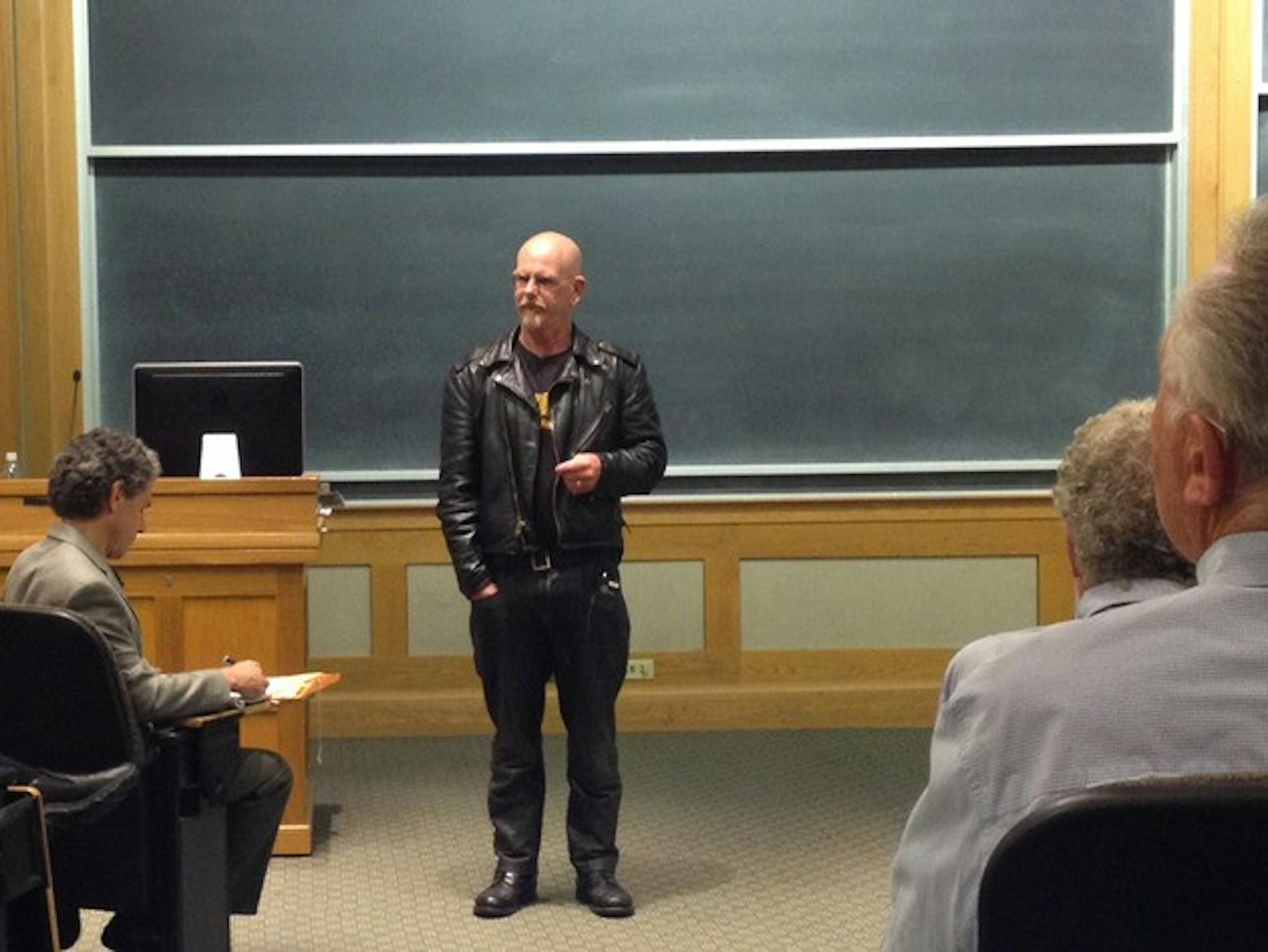Growing up near the Marcellus Shale in Pennsylvania, author Seamus McGraw knew exactly what would follow an air horn's blast. McGraw said his neighbors would have to grab a solid surface each time they heard the sound, which alerted the area, the site of hydraulic fracturing, to an upcoming quake.
Hydraulic fracturing, known as fracking, involves blasting a mixture of water, sand and chemicals about a mile and a half underground to produce energy.
McGraw, who spoke Thursday in the summer's last "Leading Voices" lecture series on energy, sustainability and security, began his talk by throwing a bag of coal on the floor to demonstrate the amount of coal used on a daily basis.
"This isn't just about fracking, it is about energy, economics, environment and character," McGraw said. "This is about who we are as a people."
McGraw, who has given 65 talks across the country in the past two years, found that people's opinions on fracking tend to reflect their positions on other hot-button issues.
Polls have demonstrated that geography and gender are often strong indicators of how individuals view fracking.
"This is the way we have our debates, across the surface fractures in our culture," he said.
McGraw discussed the difference between preservation and conservation, two terms frequently used interchangeably, though only conservation reflects true commitment to saving the earth.
"Preservation is an admirable idea, but respect for the land means an understanding in a visceral way that land can be an ally and adversary," McGraw said. "His fate and yours are linked."
McGraw said the area surrounding Dartmouth is highly unlikely to be fracked because it lacks natural gas. He noted, however, that Edwin Drake, the first person to strike oil in the U.S., tested in Hanover. Crosby Hall, where Blunt Alumni Center is now located, was once a lab where students discovered a replacement for whale oil, he said.
These discoveries reflect an academic "moral responsibility" to take a stand on environmental issues.
Problems associated with fracking, including surface spill, methane migration and air pollution, will continue without direct action, and those who deny the fracking's detrimental effects stand in the way of effective solutions, he said.
"Anyone who tells you that this can be developed safely with little to no environmental risk is either misinformed or intentionally misleading you," McGraw said.
Mark Sheridan '15, who attended the lecture as part of an environmental studies class, said the lecture focused on a relevant debate.
"The development of a natural gas policy has been such a central issue in our energy policy in the last couple of years," he said.
Emily Reeves '15, who attended the lecture to get extra credit for her environmental studies course, said McGraw's personal relationship with fracking let him examine it from every angle.




